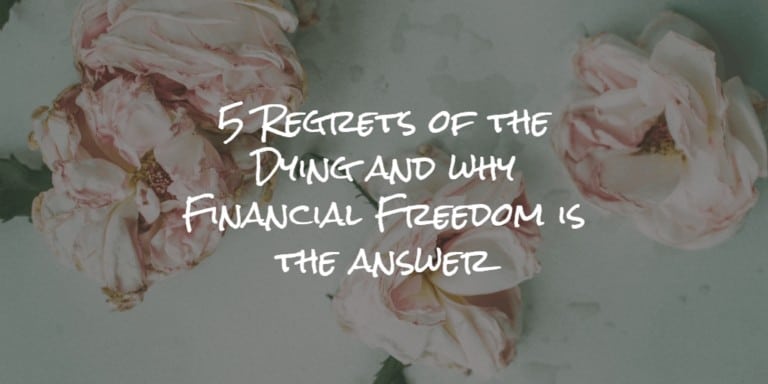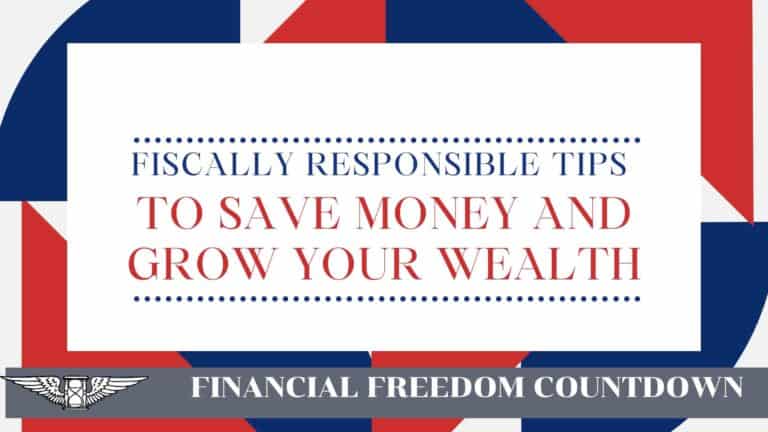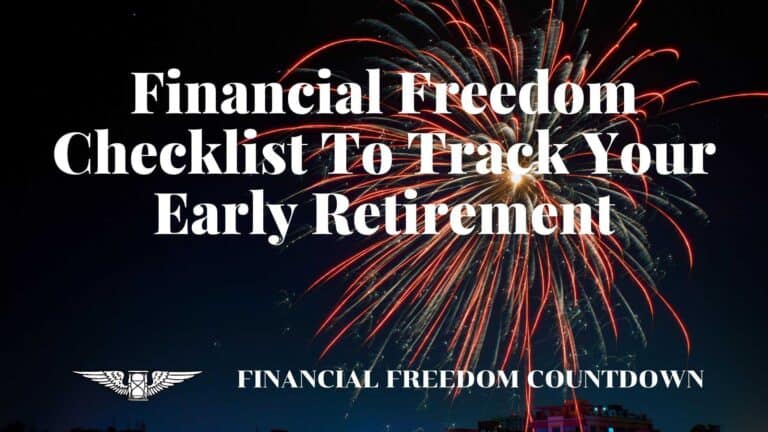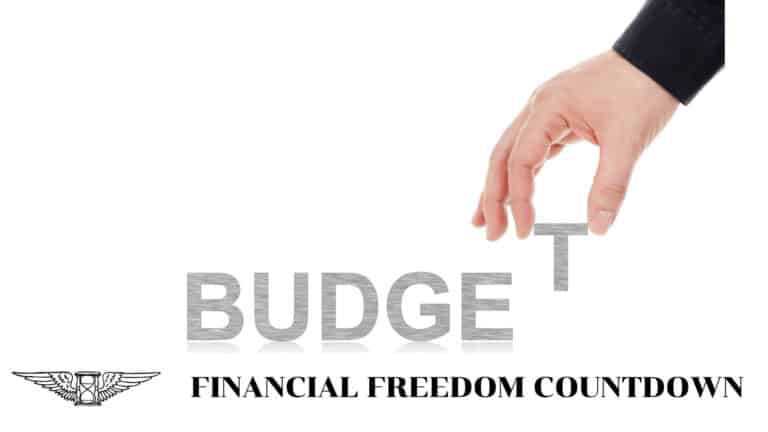How To Avoid Being House Poor And Actions To Take If You Are
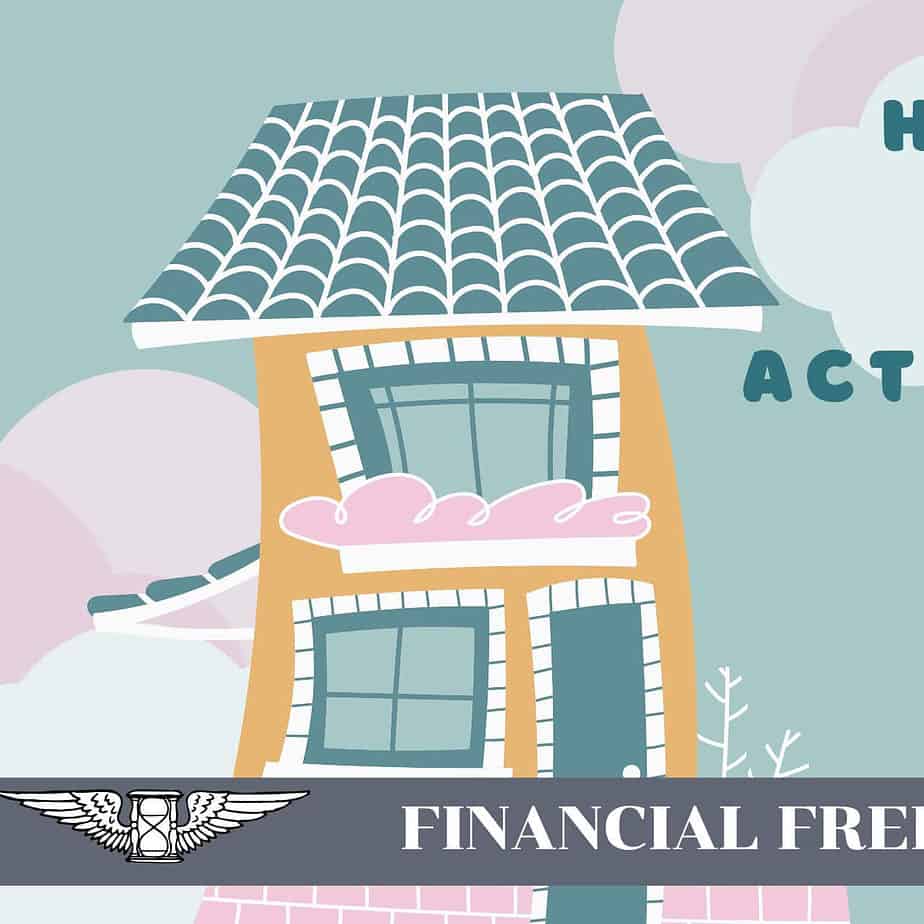
Have you ever heard the term “house poor?” It’s a term used to describe people who cannot afford their monthly mortgage payments, even though they may have a good income. It can be dangerous, as it often leads to foreclosure and other financial problems. Fortunately, you can do things to prevent yourself from being house poor, and there are actions you can take if you are already house poor.
What Is “House Poor”
House poor is purchasing a house that exceeds the owner’s budget. Owning a home involves extensive payments and expenses, including your monthly mortgage payment, maintenance costs, insurance, PMI, and more. These essential expenses go well beyond other housing costs, like furniture, decorations, and upgrades.
All these expenses can ultimately add up and create a situation where someone’s housing costs drive out their ability to do anything else, save for the future, or achieve their financial goals. A house-poor person will likely not have adequate money to prepare for an emergency or save for retirement.
In extreme cases, being house poor may result in someone losing their ability to pay for anything else, save for the necessary expenses. Proper planning can help someone avoid becoming house poor, but even the best planners can find themselves in a situation where their income changes and they become house poor.
Mathematical Definition of House Poor
A relatively standard definition of house poor involves someone spending more than 30% of their gross income on housing costs, although this may not apply to everyone in certain circumstances.
The 30-percent rule, which states that a household should spend no more than 30 percent of its income on housing costs, has been widely accepted by academics. based on an amendment passed in 1969 by Senator Edward Brooke, a vocal advocate of affordable housing.
The Brooke amendment allows public housing agencies to establish a rental contribution of less than 30% of assisted families’ income.
Knowing how much to budget for housing is hard, but 30% is a great starting point.
Budget templates generally include housing along with other essential expenses such as groceries. Even the popular 50/30/20 budget rule only defines 50% of your paycheck for essentials, with no further breakdown for only housing costs.
If you need a budget tool, check out Personal Capital, a free software I use to monitor my financial health. Unlike other budgeting apps, Personal Capital doesn’t need you to do the tedious task of setting up a budget. After you link all your accounts together, it looks at your current spending and creates a budget for your lifestyle. You can then modify it as needed.
Personal Capital also has features to analyze your retirement accounts, eliminate fees, and track your liquid net worth and cash flow. You can read my Personal Capital Review and how I use the various components to set up your free account.
How Do People Become House Poor
First, there may be a massive change in an individual’s income, such as jobs or unemployment. If this happens, people may find that they cannot meet expenses beyond the most necessary – including housing costs.
Second, there may be a massive change in the cost of the house. It may occur due to an emergency, like a gigantic natural disaster that causes severe home damage without adequate insurance.
Or if someone opts for an adjustable-rate mortgage(ARM) that rises significantly instead of sticking to a fixed 15 or 30-year mortgage.
What Should I Do Before Buying a Home
Buying a home is a massive financial commitment. Mortgage payments will make up a considerable chunk of your monthly expenses, so you must have enough money to make these payments. Furthermore, there are specific actions you should take to get your finances ready for any mortgage payment.
Get Your Finances in Order
Buying a home is a massive commitment, requiring extensive savings for a down payment, regular property taxes, moving costs, and more. As such, you should only consider buying a home with your finances in order. Based on the market cycles, don’t ask if it is a good time to buy a house. Instead, calculate when your finances will be in good shape to afford a home.
Figuring out your debt-to-income (DTI) ratio is a great way to avoid becoming house poor. Your debt-to-income ratio is the proportion of your overall income that goes toward paying off debts. A rule of thumb is that your total debt should be at most 36% of your income. The debt calculation includes personal loans, car payments, credit cards, and mortgage payments.
Monitor Credit Reports
You should also regularly check your credit report for any fraudulent activity. Even if you have excellent credit habits, identity theft and errors in credit reports can cause your score to tank, and you might not even know about it.
Credit Karma partners with Equifax and TransUnion and offers free credit reports and free credit scores updated weekly. It also provides alerts when it detects unusual activity on your credit files.
You can also sign up with Transunion with a paid subscription for additional monitoring and peace of mind.
If you need an excellent credit score, follow the Credit Karma recommendations on improving your credit and thus reducing your debt. All of this can help you save money and provide for future growth.
Build a Job Loss Emergency Fund
You need to build an emergency fund to ensure you can manage mortgage payments in the event of a job loss. As part of preparing for a recession, you should realize that it will be hard to get another job when the economy is in the doldrums, even if you have excellent high-income skills.
The emergency fund should have 3-6 months of vitally necessary expenses. You should also examine your debt and ensure you can continue paying it off. There are different kinds of debt, of course, and you should make sure that you know what debt you have and try to get a good understanding of what your debt is and how you will be able to handle it in the future.
Do Your Homework and Research
Thanks to the advent of the internet, you can easily see what properties are available and roughly how much those homes will cost. Many real estate websites, like Redfin and Zillow, can give you an idea of what is for sale in the area you are interested. You can use this information to determine your overall housing expense and get a guess on the down payment that you will have to pay.
You can determine your down payment, insurance premiums, property taxes, and what you can comfortably afford. You can also begin speaking to a real estate agent about what properties you may be interested in. They can begin to do the necessary work to ensure you can start buying a home, and they can present you with up-to-date options about mortgage payments and total expenses.
However, remember that these calculators will not provide you with a comprehensive overview of your financial situation. Other circumstances may apply uniquely to you and only to you. You may have other debt that isn’t calculated and financial goals that you want to obtain, such as planning to retire early. As such, part of your homework and research ensures you have the finances to pay for a home. It would help if you had an idea of your maximum monthly payment, then limit the homes you view from there.
Last, keep in mind that many costs will escalate. The good news about getting a fixed-rate mortgage is that it locks in your monthly payment. Unless you refinance or miss a payment, the amount you pay in your mortgage will stay the same.
However, your property taxes will increase, your insurance might, and other expenses certainly will. Your income will likely increase over time, but when planning and researching, you have to prepare for the worst, and it’s always a good idea to plan conservatively.
Protect Your Assets
You should also ensure you have all the necessary insurance, including your health and life insurance. A financial advisor can help you determine the most necessary insurance for your economic situation.
Finally, you should speak with an attorney and ensure you have a revocable living trust before buying a house. This ensures that your most significant financial asset – your home – is covered if something happens to you.
Trust & Will provides state-specific trusts to protect and transfer your most important financial assets. You can also nominate legal guardians for your children to ensure they are looked after by someone you know and trust in case something happens to you.
How Can I Avoid Being House Poor?
Fortunately, you can avoid becoming house poor by taking the right steps and engaging in the right sort of financial planning.
Buy a Smaller House
Everyone has dreams of living in the most prominent house possible and turning their home into a McMansion to raise a family, host friends, and relax. However, that is only possible sometimes – at least at first. It may seem painfully obvious, but you should always be below your means. Doing so can ensure that you are prepared for an emergency, have time to get your financial house in order, and are ready for the future.
Remember, buying a smaller house doesn’t mean you will live in a smaller house forever. It means that you are living in a home for a set period to get your finances in order.
Furthermore, you can still engage in value add real estate projects that improve your home’s size or living space. Minor enhancements will make living in your home easier and enhance its resale value for when you ultimately move out.
You can also use your starter home to begin your real estate investing journey. After you have outgrown your home, run the numbers on your home, similar to evaluating a rental property.
You can then decide if your former home is a great rental. Or you could sell the home and avail of the IRS Sec 121 exclusion of $500,000 tax-free capital gains for joint returns.
Don’t let the lack of knowledge hold you back. There are plenty of landlord related books on our list of best real estate books.
Prepare Finances Appropriately
A home loan is a significant expense and one that you shouldn’t consider lightly. As such, examine how much a home will cost you and ensure that your debt-to-income ratio will be manageable. Track how you will do versus your best guess about your future income level. Will the level of debt be sustainable? Will your gross monthly income increase over time, ultimately putting you in a better position to make your monthly payments?
Furthermore, remember that there are unexpected expenses associated with home ownership. What happens if your roof fails? Or if a furnace breaks? Will you be able to afford private mortgage insurance or homeowners insurance? What about the costs of membership associated with a homeowners association?
All of this may require more planning and preparation. You should talk to a financial professional about your circumstances and how you will manage unexpected costs. Remember, you shouldn’t need a second job to live in a home. If you do, you may be looking at buying something that you ultimately cannot afford.
Get the Right Kind of Mortgage
Mortgages are a significant expense and can easily make you cash-poor. However, there are things you can do to make your mortgage more affordable.
First, ensure you get the right mortgage for your monthly gross income. There are many different products, but the most affordable is usually a thirty-year mortgage.
A 15-year mortgage will enable you to get rid of your mortgage faster. However, the payments are much higher and may be higher than your monthly gross income can afford. As such, the added expense for your monthly mortgage payments may not be worth it.
Evaluate the pros and cons of a 15 vs. 30-year mortgage.
Furthermore, there are often variable interest rates versus fixed interest rates. Variable interest rate mortgages have interest rates that can shift depending on the economy. These can be very advantageous in times of low interest, as they can keep your interest payments to a minimum.
However, if the interest rate environment changes, your monthly mortgage payment will massively increase. It can blow up your monthly budget and dramatically increase the cost of your mortgage.
However, there are some circumstances where a variable interest rate may be advantageous. A 5/1 ARM mortgage is fixed for the first five years and might increase after five years. If you are not in your home for more than five years, it may be worth examining getting an ARM.
Furthermore, remember that refinancing such an interest rate is always an option. The challenge is that refinancing from a variable to a fixed interest rate can still be very expensive, particularly if interest rates rise.
The point is that you need to fully understand what your interest rate is, when it will rise, and how you can limit your payments. It requires proper planning.
Make a Larger Down Payment
Down payments are necessary to show that you have saved up enough money you can afford to buy a home. These payments are usually relatively low in terms of the home’s overall value. At a minimum, they can cost no more than 3% of the home value.
However, that’s not to say that you shouldn’t pay more. Remember, a down payment goes towards the overall value of the home. The larger the down payment you make, the lower your mortgage payment.
At the same time, depending on your cash situation, you may be unable to afford to make a larger down payment. It is entirely dependent upon your financial situation and monthly budget. It may be more advantageous for you to keep more of your cash on hand and prepare for a potential financial emergency.
Don’t Go by Pre-Approval
Most people will go through a pre-approval process when applying for a mortgage. It lets buyers know how much money they can borrow and sets a maximum limit. This limit depends on various factors, including income, debt-to-income ratio, cost of living in the area, anticipated interest rates, and more.
Here’s the thing: Just because you have been pre-approved for a loan doesn’t mean that it is a good idea for you to take out that entire balance. A pre-approval is a formula and algorithm-based effort to see how much of a housing payment you can afford.
Only you know your personal financial situation. When applying for a mortgage it is always best to be fiscally responsible.
Furthermore, a pre-approval only covers housing payments, insurance, and property taxes. It won’t necessarily cover the expenses calculated in building an emergency fund or managing last-second emergency repairs.
It also won’t cover the costs of engaging in hobbies you love, having kids, or having financial independence. Don’t think that pre-approval is the final word for how much you can afford.
Personal finance basics dictate that you should keep a buffer for unexpected expenses.
How Do I Stop Being House Poor?
If you have already bought your home and had a change in your income – or you misjudged your financial circumstances – you may find yourself in a situation where you are already house-poor. Though highly problematic, you can still take actions that can allow you to reexamine your finances and potentially change your financial situation.
Refinance Your Mortgage
Debt refinancing can be like hitting a reset button on your debt. There are many potential reasons that you may want to refinance your mortgage, including:
- As interest rates drop, they can provide you with a lower or more sustainable interest rate.
- It can lower your monthly payments and reset your debt payments’ clock. For example, if you opted for a 15-year mortgage and realized that the housing expenses are taking a massive chunk of your salary, a 30-year could be better.
- It can get you out of a variable interest rate scheme that sees your interest rate rising.
Refinancing has its disadvantages. Chief among them is that you will wind up making higher payments over the life of your loan, as you will be extending the amount of time you make interest payments. However, refinancing may free up invaluable cash, enabling you to avoid being house poor.
Also, avoid cash-out refinancing unless you have a specific higher interest-rate debt to be paid off
Consolidate Your Debt
Debt consolidation is a way of managing debt unrelated to your mortgage. It may help you manage other aspects of your financial situation, thus ensuring that you can better afford to make your mortgage payment and live a comfortable life.
Debt consolidation – debt refinancing – works like any other mortgage payment. With debt consolidation, you can combine other debts into one payment. Many debt consolidation companies can help you get the lowest interest rate possible. It ensures that you have one payment. Consolidating debt may also enable you to get a lower interest rate, thus lowering your overall monthly cost and enabling you to better afford other payments – like on your mortgage.
The best action is always to avoid high-interest debt such as credit cards or installment loans. But if you already have this debt, loan consolidation using services like Credible might be an option.
Increase Income
There is a limit to which you can cut debt and expenses, but the potential to maximize income is unlimited. Increasing income should also be on your radar.
Improve your human capital at work and earn more from your day job.
Side gigs in real estate could be one option to increase income and improve your knowledge. Look for deals in your neighborhood to flip a house profitably. or wholesaling.
Consider passive income ideas. You can establish a steady stream of income by investing some effort initially.
Make money from your hobby. Here is my Bluehost affiliate link to start a website for less than $4/month. My friend started a kitchen herb garden and now sells e-books on herb gardening from her website. Another friend is offering keto recipes on his website. With low costs to start an online business, there is no reason not to start. Check out my guide on how to create a website in 10 minutes.
House Hack
You have already bought your home. Now it is time to turn it into an income-producing asset.
House hacking helps us create income from our houses while we still live there.
Look at various options, from short-term rentals to AirBnB to building an ADU.
At the very least, consider renting out unused space for storage if you do not want strangers living in your house.
Sign up for Neighbor and get paid to store things. You can earn $100-$400 per month as passive income with unused space. You get to pick WHO, WHAT, and WHEN items are stored. And the platform comes with $1,000,000 host liability protection.
You list your space for free, review the renter’s request (including what and when they want to store), and approve as per your criteria. You can list a garage, RV pad, closet, empty lot, shed, and basement as available rental space.
Trim Your Budget
You don’t need to eliminate all luxuries, but there are ways to cut back on our spending. For many individuals, it is simpler to save money than earn more.
One way to start is by looking at our monthly expenses and seeing where we could cut. Do we need cable TV? Can we get by with a less expensive cell phone plan? These are the types of questions we should be asking ourselves.
Most companies drain our money by asking us to sign up for subscription services. We often pay for several subscription services and don’t even use them. Trim is an excellent service that looks at all your current subscriptions and saves money by eliminating unnecessary money leeches. Also, instead of paying full price, sign up and see if Trim can negotiate lower cable, phone, and internet bills.
Sell and Downsize
Due to the transaction costs involved in real estate, selling your home and buying a smaller one should be the last resort. But it is an option to be considered.
Although it may not be your first choice, selling your home could allow you to move to a cheaper area or find a rental with more affordable payments. This would free up some extra money you could save for buying a new place.
Being House Poor Should Not Be the Cost of Home Ownership
As you can see, being house-poor can lead to significant financial repercussions. It can lead you to be bound to your house, be unable to afford anything else, and ultimately drive you into massive financial problems. On a purely emotional level, being house-poor can create a situation in which you deeply resent your home, making it impossible for you to live and relax.
Here’s the good news: You can avoid being house poor in many cases. With proper financial planning, you can be prepared to buy a home you can afford. And if you are currently house-poor, follow the steps to lower your housing expenses.

John Dealbreuin came from a third world country to the US with only $1,000 not knowing anyone; guided by an immigrant dream. In 12 years, he achieved his retirement number.
He started Financial Freedom Countdown to help everyone think differently about their financial challenges and live their best lives. John resides in the San Francisco Bay Area enjoying nature trails and weight training.
Here are his recommended tools
Personal Capital: This is a free tool John uses to track his net worth on a regular basis and as a retirement planner. It also alerts him wrt hidden fees and has a budget tracker included.
Platforms like Yieldstreet provide investment options in art, legal, real estate, structured notes, venture capital, etc. They also have fixed-income portfolios spread across multiple asset classes with a single investment with low minimums of $10,000.
